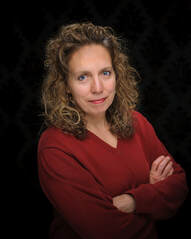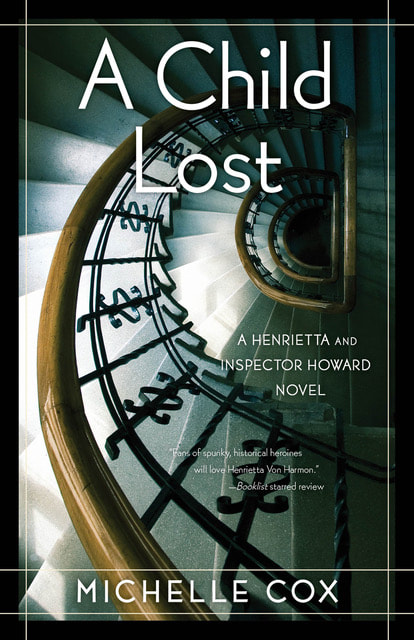|
Q: Where does your inspiration come from? Most of my inspiration comes from my time working in a nursing home on Chicago’s northwest side in the early 1990s. The residents were mostly immigrants who had somehow made it to Chicago, where they proceeded to spin a whole new life for themselves. I spent a lot of time interviewing each resident, and I came away with tons of fascinating stories—many of them stranger than fiction! Q: Where does your inspiration come from? Most of my inspiration comes from my time working in a nursing home on Chicago’s northwest side in the early 1990s. The residents were mostly immigrants who had somehow made it to Chicago, where they proceeded to spin a whole new life for themselves. I spent a lot of time interviewing each resident, and I came away with tons of fascinating stories—many of them stranger than fiction! So, if you’re suffering from writer’s block, go sit in a nursing home for a week and you’ll have more ideas than you can possibly use! This is where I get all of my ideas. I’ve saved the best ones for novels, but all the rest I put out in my blog, “Novel Notes of Local Lore.” Q: Who are two or three of your favorite authors and which of their books would you recommend? Charles Dickens is my all-time favorite author. It’s hard to pick just one of his as my favorite, but if I had to, it would probably be Great Expectations, followed closely by Little Dorrit. Dickens is the master of character and plot, especially plot twists, and his ability to tie up so many threads by the end is truly genius. His characters are often the dregs of society, but they are larger than life and painted in vivid color, so much so that almost 180 years later, they are still part of our cultural lexicon. Anthony Trollope is another huge favorite of mine. In fact, I think he’s the most underrated author in the English canon. Writing about the aristocracy, he is much more subtle than Dickens and paints in muted pastels, but he is brilliant at capturing the nuance and delicacy of English mannerisms. I personally like his Barsetshire series the best, followed closely by his Pallisers series, which is really the perfect forerunner to Downton Abbey. People often point to Upstairs, Downstairs as being the precursor to Downton, but before that was the Pallisers. Catherine Cookson had a huge influence on me as a girl. I probably shouldn’t have been reading such racy books (stolen from my mom’s bookshelf), but they really created in me a love for the big overarching saga. I adored her Cookson’s characters and plots, but mostly I loved her sense of place, the setting as character. I love all of her books, but I think The Girl stands out the most for me. Q: Are there any contemporary authors who inspire your writing style? I greatly admire the historical/women’s fiction novels of Kate Morton, Lauren Willig, and Beatriz Williams. These are the books I turn to when I have a precious few minutes to actually read what I want to read, and I aspire to write in this vein. To compare me to them would be the highest compliment. Q: How has the pandemic (and quarantine) impacted your writing? I’m a pretty disciplined person, so, despite the pandemic, I have still managed to make myself write every day for at least an hour and then to work at marketing and promotion for about six or seven hours a day. The time commitment hasn’t really changed, but my concentration, and thus my output, is definitely less due to the house now being full of a husband, an adult child, and two teens all zooming every day for work or school. So, while I’m grateful that my husband has a job and that the kids aren’t little, thereby requiring me to be hands-on with elearning, I still have constant interruptions, issues, dramas, and depression that I have to routinely deal with on a day-to-day basis. Just helping the family to navigate this mess has been exhausting, and it’s been getting harder and harder to sit down and face hours of marketing on top of that. Q: If you could only give one major piece of advice to a new writer, what would it be? Write. Every. Day. If you want to be a successful writer, this really has to become your mantra. You’ve got to write every day, whether you “feel” like it or not, whether you’re “inspired” or not. It’s like exercise. No one feels like exercising, but it’s something you have to make yourself do. My second piece of advice, if I can squeeze one in, is to ask yourself why you’re writing. Are you attempting to be a career writer, or are you just trying to get the book of your heart out into the world? It’s important to have a sense of this going into it, because being a career writer, as the name implies, is a business like any other, and if you approach it that way, you’ll have less heartache later.  Michelle Cox is the author of the multiple award-winning Henrietta and Inspector Howard series as well as “Novel Notes of Local Lore,” a weekly blog dedicated to Chicago’s forgotten residents. She suspects she may have once lived in the 1930s and, having yet to discover a handy time machine lying around, has resorted to writing about the era as a way of getting herself back there. Coincidentally, her books have been praised by Kirkus, Library Journal, Publishers Weekly, Booklist and many others, so she might be on to something. Unbeknownst to most, Michelle hoards board games she doesn’t have time to play and is, not surprisingly, addicted to period dramas and big band music. Also marmalade. Book Review of A Child Lost I’ll begin at the end. I was fully drawn into the story when I reached the end and look forward to another Henrietta and Inspector Howard novel. The detective duo is fun to watch and listen to, their love palpable and engaging, the male-female concept a nice change from the usual male detective stories. And placing the setting in the 1930s makes for an interesting historical story, when women were feeling somewhat more empowered and exploring the edges of their freedom. Henrietta is definitely a force to contend with and keeps her husband on his toes, in the best possible way.
Cox seems entirely comfortable moving between the point of view of several characters, and as a result so does the reader. I had not read her previous four novels about Henrietta and Clive, but you don’t need to in order to understand the plot of this one. Nevertheless, you might want to. There were references to the past, and I wondered about it and thought I might like to read one or two of the earlier novels. Though I would give this an overall favorable review, I felt that the pacing of the story flagged early on and could have benefited from increased tension, the problem being too many details and too many descriptions that kept us from action and suspense that I expect from this genre. 2/12/2021 02:03:40 pm
I am so glad you enjoyed 'A Child Lost'! Thanks for hosting Michelle! 2/18/2021 02:26:01 pm
Thank you so much for this thoughtful review, Herta! I'm so glad you enjoyed A CHILD LOST, and thanks for the interview! It was fun! Comments are closed.
|
Archives
May 2021
Categories |
Proudly powered by Weebly


 RSS Feed
RSS Feed